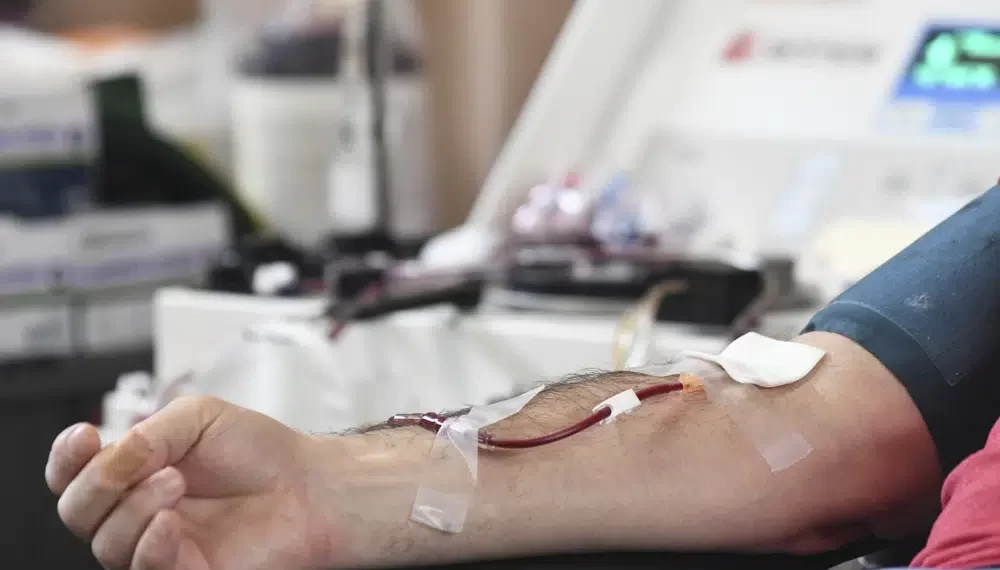Under a federal policy established on Thursday, May 11, 2023, by U.S Food and Drug Administration, gay and bisexual men in monogamous relationships can donate blood in the country without having to abstain from sex.
The strategy by the Food and Drug Administration alleviates decades-old limitations designed to protect the blood supply from HIV. The agency announced plans for the change in January and confirmed this week that the new procedure can now be implemented by blood banks.

The updated guidelines get rid of a requirement that men who have sex with men must abstain from sex for three months prior to giving blood.
Instead, all potential donors, irrespective of sexual orientation, sex or gender, will be screened with a new questionnaire that evaluates their individual risks to HIV based on sexual behavior, recent partners and other factors.
Anyone who has ever tested positive for HIV will continue to be ineligible to donate blood. Those taking pills to prevent HIV through sexual contact will also still be barred, until three months after their last dose. The FDA noted that the medications, known as PrEP, can delay the detection of the virus in screening tests.
Every blood donation in the U.S is screened for HIV, the virus that causes AIDS. However, there is a roughly 10-day window between initial infection and when the virus can be detected in the bloodstream. According to the American Red Cross, the risk of getting an HIV-positive blood donation is 1 in 1.5 million for U.S. patients. About 15.7 million blood donations are collected in the U.S. each year.

The FDA outlines requirements and procedures for U.S. blood banks. All potential donors answer questions about their sexual history, injectable drug use and any recent tattoos or piercings, among other factors that can contribute to the spread of blood-borne infections. Donated blood is then tested for HIV, hepatitis C, syphilis and other infectious diseases.
In 2015, the FDA dropped the lifetime ban on donations from men who have sex with men and replaced it with a one-year abstinence requirement.
The lifetime ban was established during the early years of the AIDS crisis and was intended to protect the blood supply from what was a then little-understood disease. However, many medical groups, including the American Medical Association, argued that due to advances in HIV testing, the policy was no longer supported by science.
Then in 2020, the institution reduced the abstinence period to three months, after donations dropped during the COVID-19 pandemic. Regulators said there has been no negative impact on the blood supply as a result of those changes.
Policy Reflects Latest Scientific Evidence

The U.S Food and Drug Administration (FDA) stated that the new policy reflects the latest scientific evidence and is in accordance with rules in the U.K. and Canada.
It’s the latest move by the FDA to broaden donor eligibility, with the potential to boost donations.
In a statement, Dr. Peter Marks, Director of the FDA’s center for biological therapies, asserted, “The implementation of these recommendations will represent a significant milestone for the agency and the LGBTQI+ community.”
Gay rights groups have long opposed blanket restrictions on who can give blood, saying they discriminate. Medical societies including the American Medical Association have also said such exclusions are unnecessary given advances in blood testing.
READ ALSO: UK Sends Storm Shadow Missiles To Ukraine



















